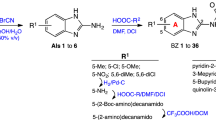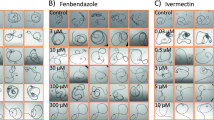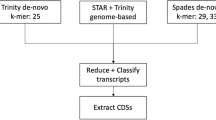Abstract
ANTIMONIALS are the treatment of choice for bilharziasis, a parasitic disease prevalent in Egypt as well as in many other tropical and subtropical areas of the world. The undesirability of giving the heavy metal poison antimony is well recognized as a calculated but necessary risk.
This is a preview of subscription content, access via your institution
Access options
Subscribe to this journal
Receive 51 print issues and online access
$199.00 per year
only $3.90 per issue
Buy this article
- Purchase on SpringerLink
- Instant access to full article PDF
Prices may be subject to local taxes which are calculated during checkout
Similar content being viewed by others
References
Morgan, K. Z., Health Phys., 3, 1 (1960).
Rassoul, A. A. A., Wahab, M. F. A., Schulert, A. R., Brown, H. G., and Mansour, M. M., Third International Conf. on the Peaceful Uses of Atomic Energy, 15, 501 (1965).
Schulert, A. R., Rassoul, A. A. A., Mansour, M., Girgis, N., McConnell, E., and Farid, Z., Exp. Parasitol., 18, 397 (1966).
Schulert, A. R., Browne, H. G., and Salem, H. H., Trans. Royal Soc. Trop. Med. Hyg., 58, 48 (1964).
Author information
Authors and Affiliations
Rights and permissions
About this article
Cite this article
MANSOUR, M., RASSOUL, A. & SCHULERT, A. Anti-bilharzial Antimony Drugs. Nature 214, 819–820 (1967). https://doi.org/10.1038/214819b0
Issue date:
DOI: https://doi.org/10.1038/214819b0



